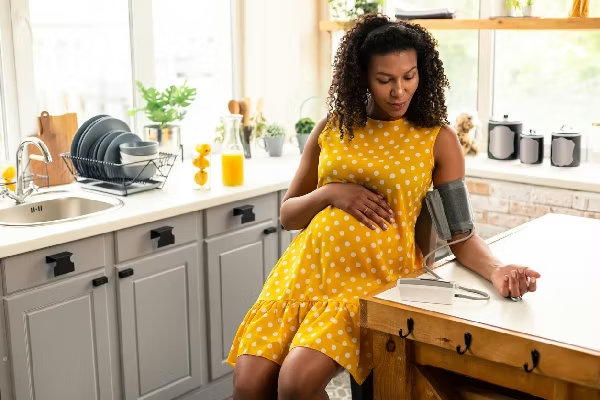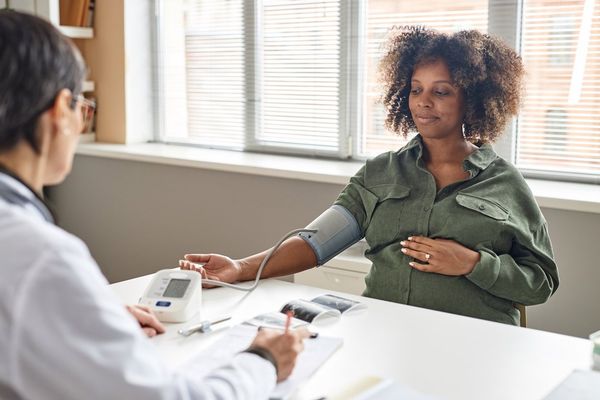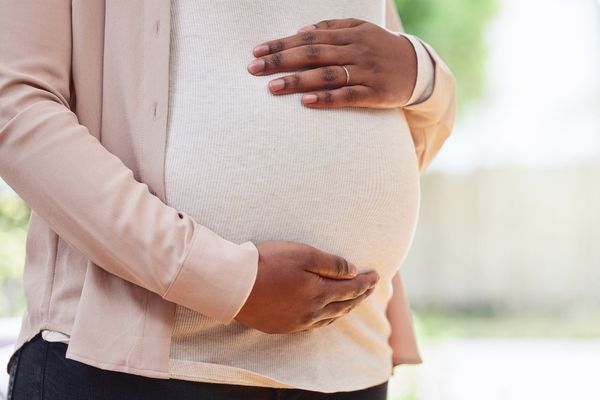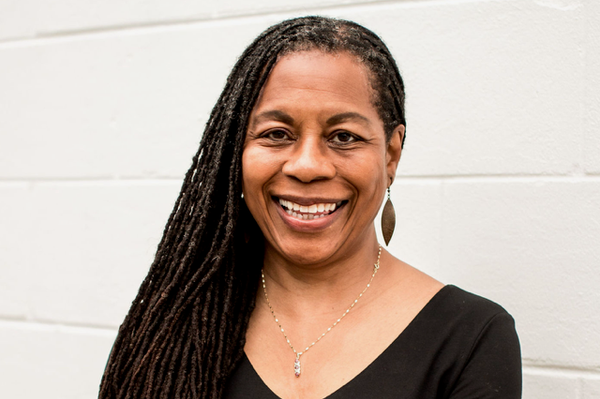When you're trying to have a baby, you likely look for any early pregnancy symptoms. And it's not for naught: Did you know that when you're as early as one to two weeks pregnant, your body can tell you what's going? Seriously, check out these 3 weeks pregnant symptoms.
Some women don't have any early pregnancy symptoms and others have many of them. And some of these symptoms resemble how you feel right before you get your period. So, it can be hard to tell the difference.
Missing your period is an obvious sign that you're pregnant. But what are some other signs that you have a bun in the oven—even before you miss your period? We're here to help you. Just know that the most accurate way to find out if you're pregnant is to take a pregnancy test and visit your ob/gyn who can confirm it with a blood test.
In the meantime, here are a few telltale signs that you may be eating for two.
Light spotting
Blood is likely the last thing you want to see when you're trying to get pregnant. But light spotting or vaginal bleeding can be a sign of implantation, which is when the fertilized egg attaches to your uterine lining. It typically happens a bit earlier, is spottier and is lighter in color and shorter in duration than your normal period. You may also have some cramps. However, light spotting between periods can also be a sign of ovulation, breakthrough bleeding, menstrual cycle changes or an abrasion from intercourse.
Breast tenderness
Are your breasts sore, tingly or feeling full or heavy? Are they sensitive to even the softest touch? You know that your breasts are sensitive when you have your period. When you're pregnant, up that sensitivity even more, thanks to the rise in pregnancy hormones (estrogen and progesterone) in the body. This is all prepping your body for its future milk making.
Nausea
Did you have to run out of the staff meeting in search of the nearest garbage can? Nausea, aka morning sickness, is a common pregnancy symptom that can happen any time of day, with or without vomiting. Blame it on the surge of pregnancy hormones (estrogen and progesterone) in your body.
Frequent urination
Do you have to pee again even though you just went 30 minutes ago? The urgency to go is due to the pregnancy hormone hCG. That increases blood flow to your kidneys so they can get rid of your waste more efficiently. Plus, your uterus is growing. And that's putting pressure on your bladder, leaving less space for it to store urine.
Fatigue
Your body needs a lot of energy to build your placenta. So that may be why you can't stay up for Jimmy Kimmel like you used to or you find yourself suddenly craving an afternoon nap. This sleepiness may be happening because of that rise in your body's pregnancy hormones. Plus, it's not surprising you're tired when your sleep is being interrupted so you can get up in the middle of the night to pee. Why not use your exhaustion as an excuse to get some extra shuteye?
Higher temperature
If you've been using a basal body thermometer and charting your temperature, you may notice that it's about one degree higher when you conceive and stays that way. Your basal body temperature is your temperature when you're fully at rest. Your regular temperature is 96 to 99 degrees Fahrenheit. But your BBT changes throughout your cycle by as much as a half-degree higher.
Food aversions
Does the smell of eggs suddenly repulse you? It's common for some smells or foods to make you gag, even ones you once enjoyed. You may also experience a heightened sense of smell, like being able to smell what's cooking next door. It's not certain why this happens, but it may be linked to the rise of estrogen in your body.
Mood swings
Did that Hallmark commercial just make you bawl? Your hormones may be making you exceptionally emotional and weepy. Or, you may be more depressed or anxious. Just be sure to contact your health care provider or a mental health professional if you're feeling depressed to the point of being unable to cope with daily life or you're thinking of hurting yourself.
Bloating
Are your favorite jeans suddenly too tight? It can be hard to tell the difference between pregnancy bloating and pre-period bloating. But many people feel bloated after they conceive, thanks to hormonal changes. Progesterone is helping slow digestion, giving the nutrients you eat more time to enter the bloodstream and get to your baby. Your clothing may feel snugger at the waistline than normal, even when your uterus is still small.
- 4 Weeks Pregnant: Suspecting Successful Conception ›
- Pregnancy Symptoms, Without the Pregnancy ›
- 3 Weeks Pregnant: Spotting the First Signs of Pregnancy - HealthyWomen ›
- 12 Reasons You're Experiencing Breast Pain - HealthyWomen ›
- Signs of Preeclampsia - HealthyWomen ›







